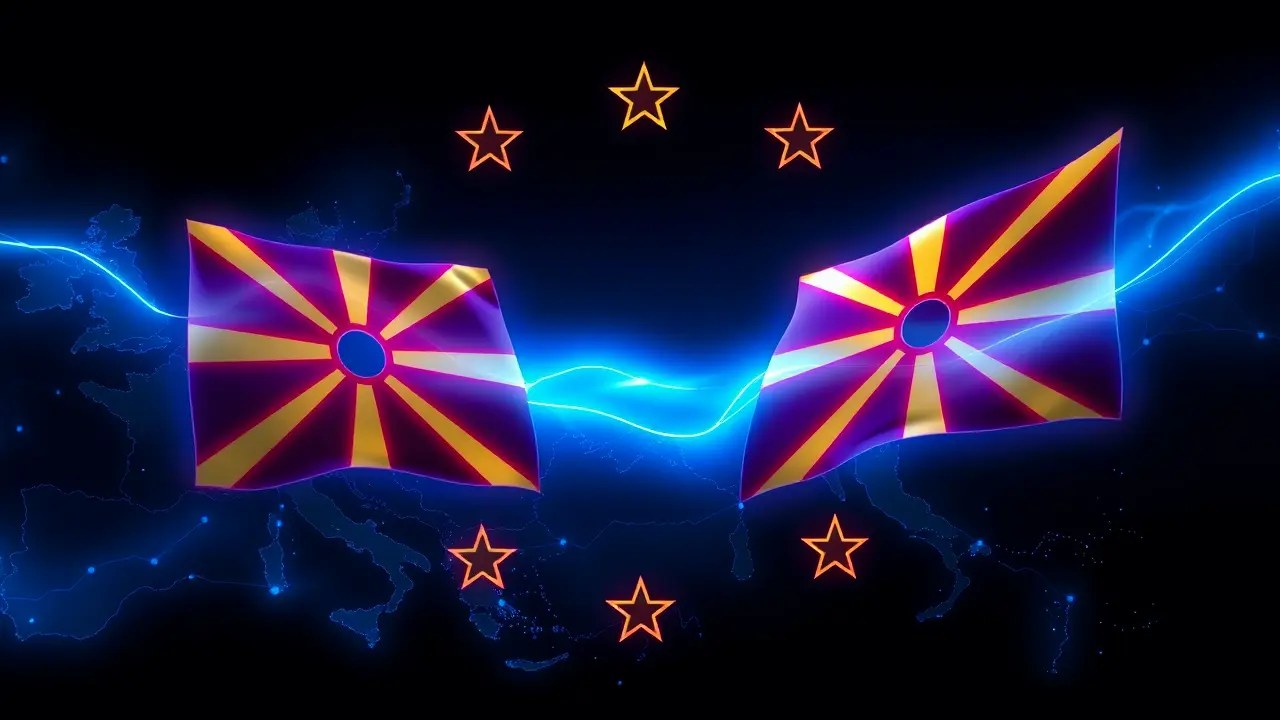
PoliticsdiplomacyBilateral Relations
Bulgaria-Macedonia Dispute Hinders EU Accession
RO
Robert Hayes
2 days ago7 min read
The European Union's eastern expansion, a project once hailed as the continent's great unifying mission, has once again run aground on the familiar shoals of history, this time in the vexed relationship between Bulgaria and North Macedonia. What appears on the surface as a diplomatic stalemate over language recognition and identity is, in fact, a profound historical dispute with deep roots in the turbulent soil of the Balkans, a region where the past is never truly past.The core of the impasse lies in Bulgaria’s longstanding position that the Macedonian language is a dialect of Bulgarian and that the shared historical figures and events of the pre-1945 period constitute a common heritage, a stance that North Macedonia views as a direct assault on the very foundations of its national sovereignty and identity, painstakingly constructed since its peaceful secession from Yugoslavia. This is not merely a bilateral squabble; it is a crisis with strategic consequences, effectively halting North Macedonia's accession negotiations with the EU and, by extension, casting a shadow over the entire Western Balkans' European perspective.One cannot help but draw a historical parallel to the Congress of Berlin in 1878, where the great powers redrew the map of the Balkans with little regard for the complex ethnic and national realities on the ground, creating legacies of grievance that would simmer for over a century. Today, in the council chambers of Brussels, we see a modern echo of that great power diplomacy, where the requirement for unanimous consent among member states gives a single nation a veto over the destiny of another.Analysts fear that this blockage does more than just delay EU integration; it plays directly into the hands of other global actors, notably Russia and China, who are all too eager to exploit European disunity and fill the geopolitical vacuum with their own influence. The domestic political landscapes in both Sofia and Skopje are equally fraught, with any government seen as making concessions on matters of national history and language risking a ferocious backlash from a galvanized opposition and a passionate public.For the EU, this represents a critical test of its geopolitical credibility and its ability to resolve the very historical conflicts its existence was meant to transcend. The path forward demands a statesmanship reminiscent of Churchill's post-war vision—a recognition that while history cannot be erased, it must not be allowed to eternally imprison the future.A potential solution may lie not in demanding one side capitulate to the other's historical narrative, but in forging a pragmatic framework that allows for the acknowledgment of differing interpretations while focusing on the tangible benefits of European integration, security, and shared prosperity. Without such a breakthrough, the dream of a united Europe will remain tragically incomplete, held hostage by the ghosts of a past that refuses to stay buried.
#EU accession
#North Macedonia
#Bulgaria
#bilateral dispute
#identity recognition
#language recognition
#diplomatic stalemate
#featured
Stay Informed. Act Smarter.
Get weekly highlights, major headlines, and expert insights — then put your knowledge to work in our live prediction markets.
Related News
© 2025 Outpoll Service LTD. All rights reserved.













